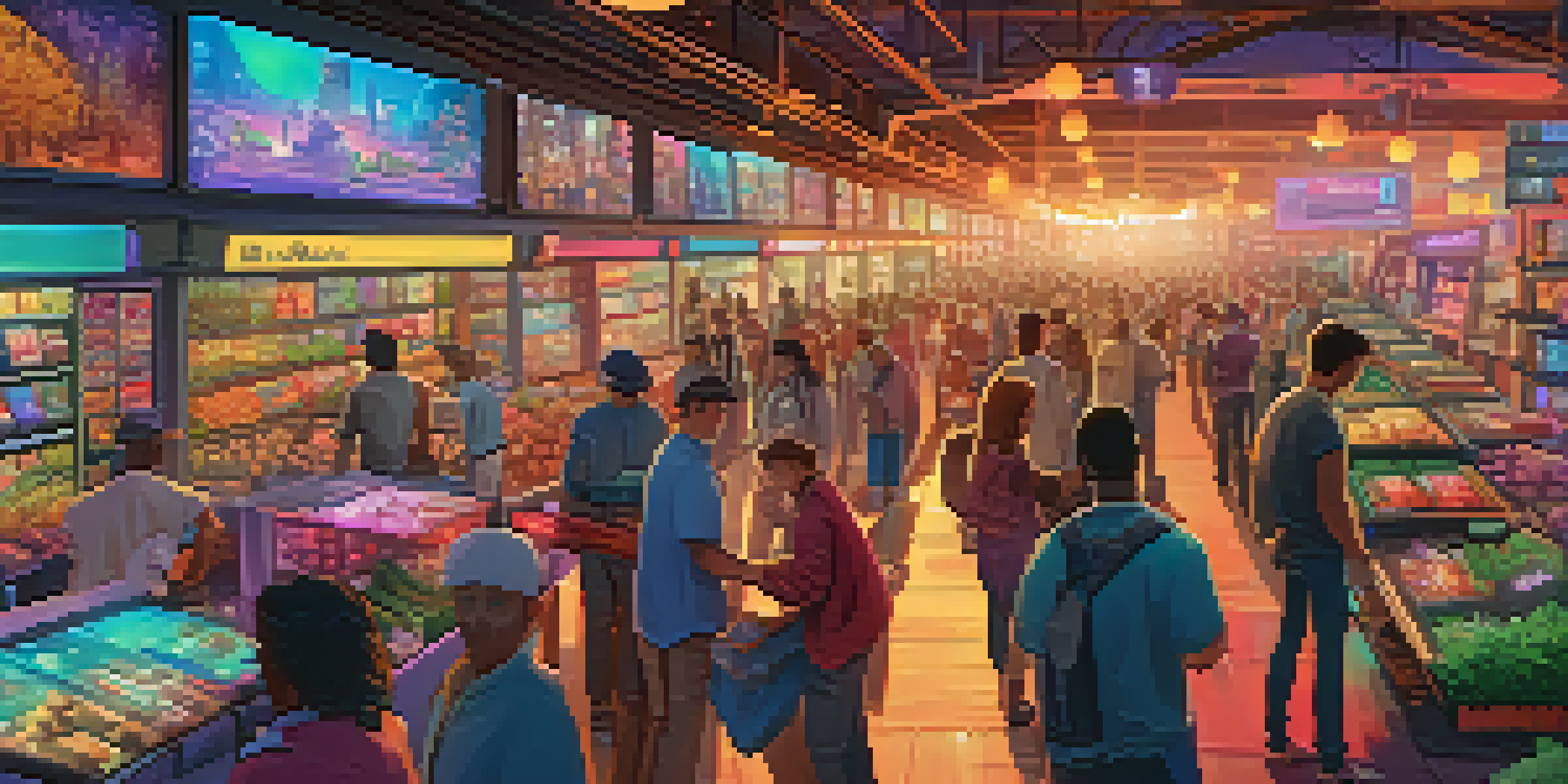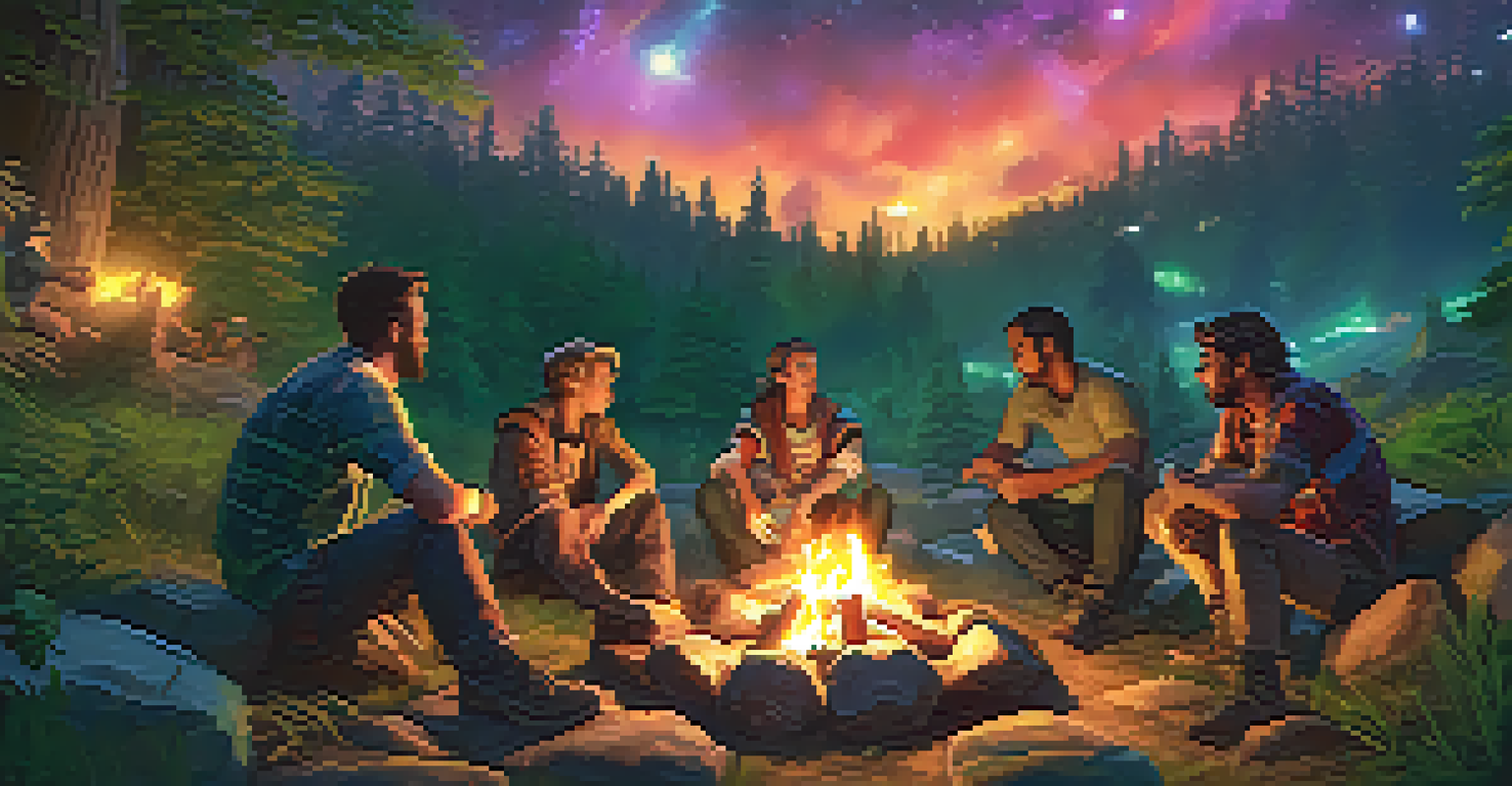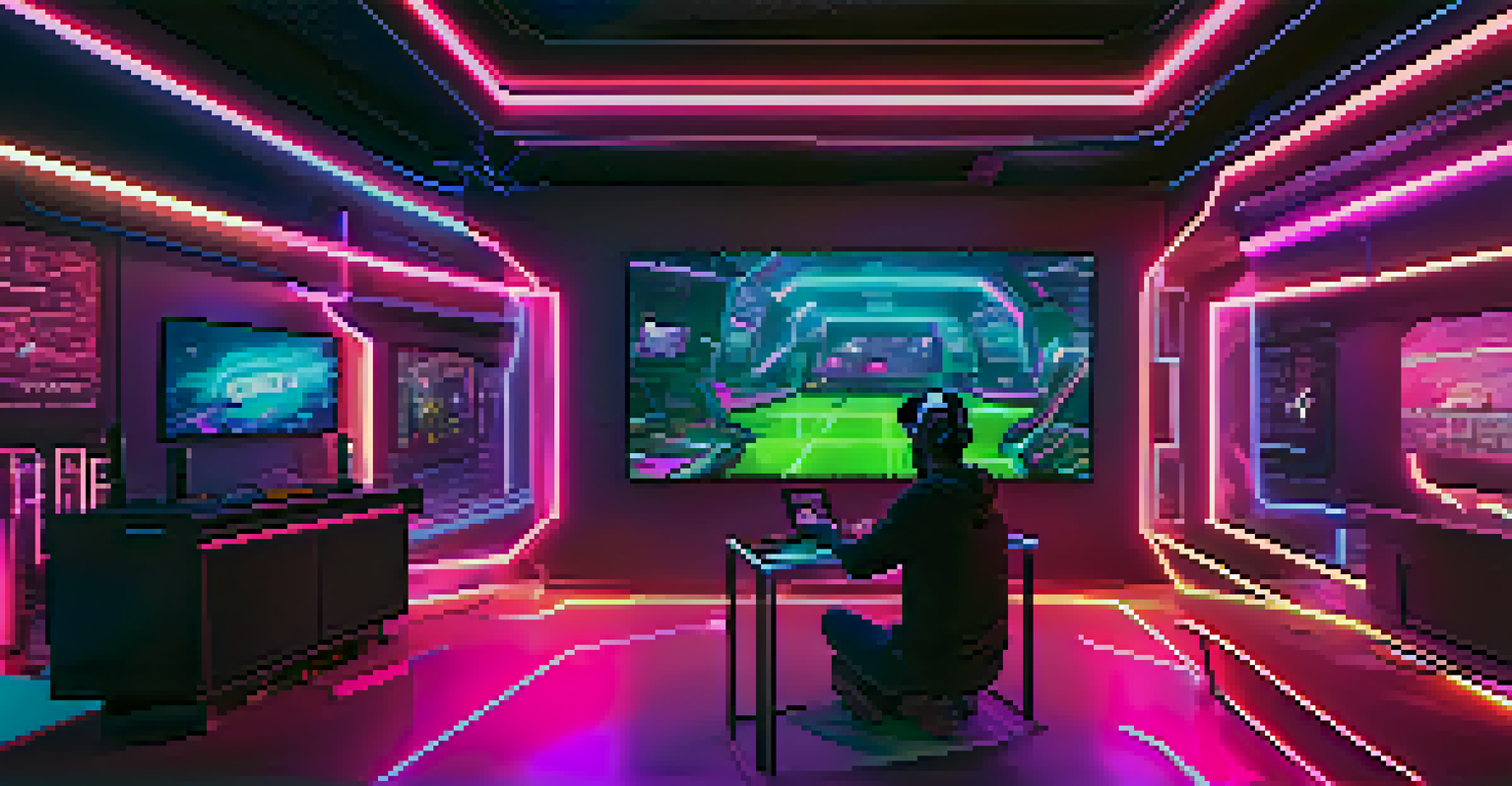Decentralized Gaming: The Role of NFTs in Player Empowerment

Understanding Decentralized Gaming and Its Appeal
Decentralized gaming is a fresh approach that shifts power from game developers to players. Instead of traditional centralized models where a company owns everything, decentralized games leverage blockchain technology, allowing players to have a stake in the game’s ecosystem. This shift not only enhances transparency but also fosters a sense of community among players, making gaming more inclusive and equitable.
In a decentralized game, players are not just users; they are stakeholders who have a say in the gaming experience.
In this landscape, players can truly own their in-game assets, thanks to the unique features of blockchain. Think of it like owning a collectible card; once you have it, it’s yours to keep, trade, or sell, regardless of the game’s future. This ownership breaks down the barriers that have long existed in gaming, where your hard-earned items could vanish if a developer decided to shut down a game.
By participating in decentralized gaming, players can also help shape the future of the game. This involvement creates a dynamic environment where player feedback is not just welcomed but actively sought after, leading to more tailored gaming experiences. As a result, gamers feel more connected to the games they love, knowing they have a voice in their development.
The Rise of NFTs in Gaming: A Game Changer
Non-fungible tokens, or NFTs, have taken the gaming world by storm, introducing a new layer of ownership and value. Unlike cryptocurrencies, which are interchangeable, NFTs are unique digital assets that represent ownership of specific items, characters, or even virtual real estate within a game. This uniqueness adds a new dimension to gaming, where players can invest in and trade these assets.

Imagine earning a rare sword in a game that you can sell or trade for real money. That’s the allure of NFTs – they give tangible value to digital assets, allowing players to monetize their skills and time spent in the game. This not only enhances the gaming experience but also provides new revenue streams for players, making it more than just a pastime.
Player Ownership Redefined
Decentralized gaming empowers players by allowing them true ownership of in-game assets through blockchain technology.
Furthermore, NFTs can serve as a bridge between different games and platforms. A player might acquire a unique item in one game and then use it in another, creating a richer and more interconnected gaming universe. This interoperability is a significant shift from traditional gaming, where assets are often confined to a single game, stifling creativity and player expression.
Player Empowerment: Ownership and Control
At the heart of decentralized gaming and NFTs is player empowerment, which stems from true ownership of in-game assets. Players no longer have to fear losing their gear or characters when servers go down or games are discontinued. With NFTs, the ownership is recorded on the blockchain, ensuring that players maintain control over their investments.
The future of gaming is not just about playing; it's about owning, sharing, and participating in a community-driven economy.
This empowerment encourages players to engage more deeply with their games. When you know that your time and effort lead to actual ownership, the stakes feel higher, making the experience more rewarding. It’s akin to building a home; you take pride in every brick laid because you know it’s yours to keep.
Moreover, this shift in ownership translates to a more vibrant marketplace where players can buy, sell, and trade assets freely. This marketplace not only boosts player engagement but also stimulates the economy within gaming communities, offering opportunities for players to earn a living doing what they love.
Community Building in Decentralized Gaming
Decentralized gaming fosters a sense of community that traditional gaming often lacks. With the power in the hands of players, they are more likely to collaborate and build relationships, sharing strategies and assets. This community-centric approach creates a more enriching experience, as players learn from one another and grow together.
In many decentralized games, players form guilds or clans that operate collectively, pooling resources and strategies to achieve common goals. This teamwork not only enhances gameplay but also builds friendships and networks that extend beyond the game itself. It’s much like being part of a sports team, where collaboration leads to success and shared experiences.
Economic Opportunities in Gaming
NFTs and play-to-earn models create new income streams for players, transforming gaming from a hobby into a viable economic activity.
Additionally, community feedback can directly influence game development, making players feel valued and heard. This participatory approach fosters loyalty and passion, as players are invested not just in the game but also in its evolution. This bond strengthens the gaming experience, creating a thriving ecosystem where everyone benefits.
Economic Opportunities: Making Money While Playing
One of the most exciting aspects of decentralized gaming is the economic opportunities it creates for players. By owning NFTs, gamers can sell their unique items on various marketplaces, providing a potential income stream that was previously unheard of in traditional gaming. This financial incentive transforms gaming from a simple hobby into a viable economic activity.
Consider a player who spends hours perfecting their skills and acquires rare items; they can turn those assets into real money by selling them to other players. This model not only rewards dedication but also encourages players to invest time in honing their skills. It’s like turning your passion for a sport into a profession, where practice leads to tangible rewards.
Moreover, decentralized games often feature play-to-earn models, where players earn tokens or assets just for participating. This innovative approach democratizes earning potential, making it accessible to anyone willing to put in the effort. As a result, gaming becomes an inclusive platform that allows players from various backgrounds to thrive.
Challenges and Risks of Decentralized Gaming
While decentralized gaming and NFTs offer exciting opportunities, they also come with challenges and risks. The volatility of cryptocurrency markets can affect the value of in-game assets, making it a potentially unstable investment. Players need to be cautious and informed, understanding that the financial aspect of gaming can fluctuate significantly.
Additionally, the technology itself can be daunting for newcomers. Blockchain and NFTs are still relatively new concepts for many, and the learning curve can be steep. It’s important for players to educate themselves and seek guidance to navigate this evolving landscape effectively.
Community-Centric Gaming Experience
Decentralized gaming fosters collaboration and community-building, enhancing player engagement and loyalty.
Lastly, the potential for scams and fraud is a concern in the decentralized space. Players should be vigilant and conduct thorough research before making any purchases or trades. Just as in any marketplace, being informed and cautious can help protect players from pitfalls while they explore this exciting frontier.
The Future of Gaming: A Decentralized Revolution
As we look to the future, decentralized gaming and NFTs are set to revolutionize the industry. The shift towards player empowerment and ownership is likely to influence how games are developed and played. We may witness a new era where player feedback shapes game design, creating experiences that truly resonate with the community.
Moreover, the integration of advanced technologies like virtual reality (VR) and augmented reality (AR) with decentralized gaming could open up even more immersive experiences. Imagine exploring a vast virtual world where your assets are not just digital but have real-world value. This fusion could blur the lines between reality and gaming, offering unprecedented opportunities for players.

Ultimately, the growing acceptance of decentralized gaming signifies a shift towards a more player-centric model that prioritizes community, creativity, and economic opportunity. As gamers embrace this new paradigm, they can look forward to a future where they not only play but also shape the games they love.